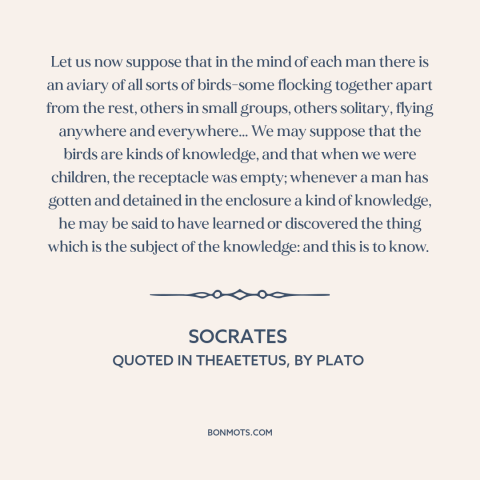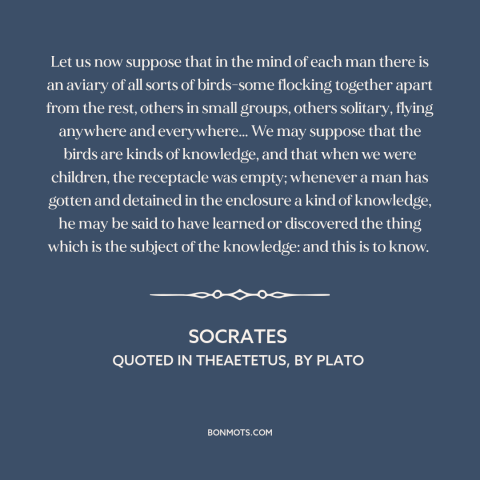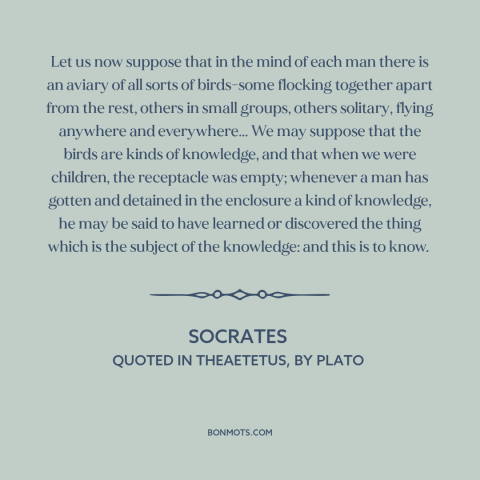Let us now suppose that in the mind of each man there is an aviary of all sorts of birds-some flocking together apart from the rest, others in small groups, others solitary, flying anywhere and everywhere... We may suppose that the birds are kinds of knowledge, and that when we were children, the receptacle was empty; whenever a man has gotten and detained in the enclosure a kind of knowledge, he may be said to have learned or discovered the thing which is the subject of the knowledge: and this is to know.
Quoted in Theaetetus, by Plato
Authentication Score 2
Original Citation
Socrates. Quoted in Θεαίτητος [Theaetetus], written by Plato. c. 369 BC.
Current Citation
Socrates. Quoted in Theaetetus, written by Plato, translated by John McDowell. Oxford University Press, 2014.



